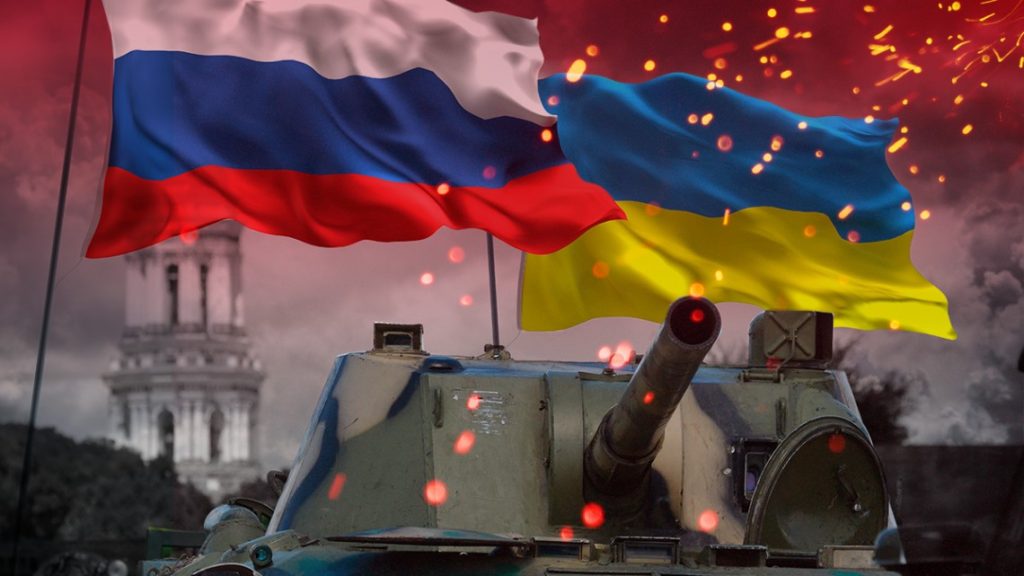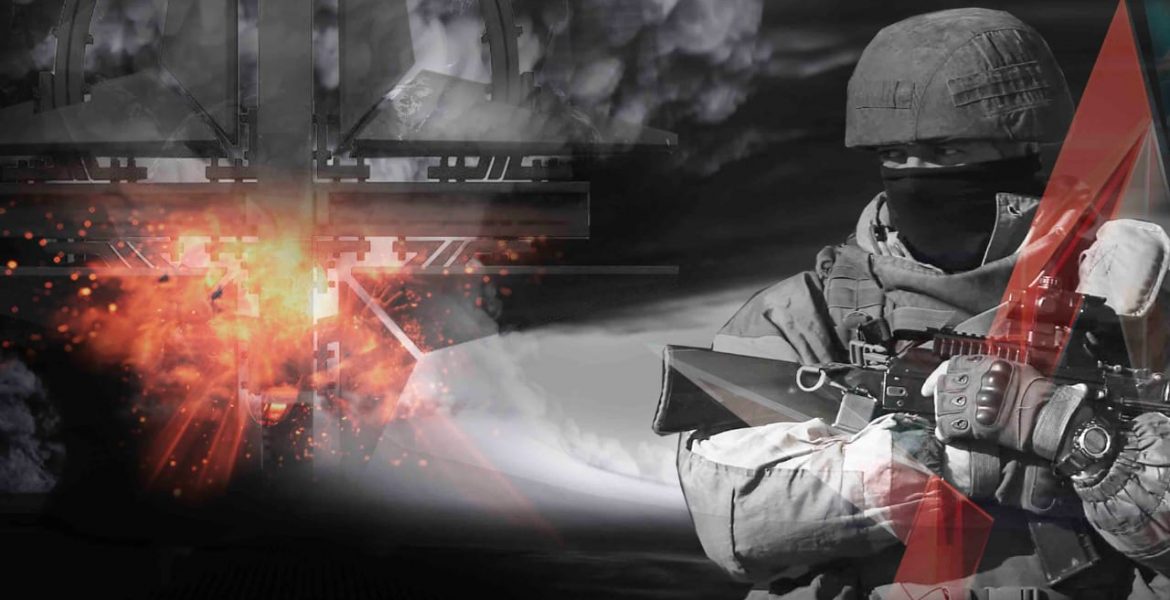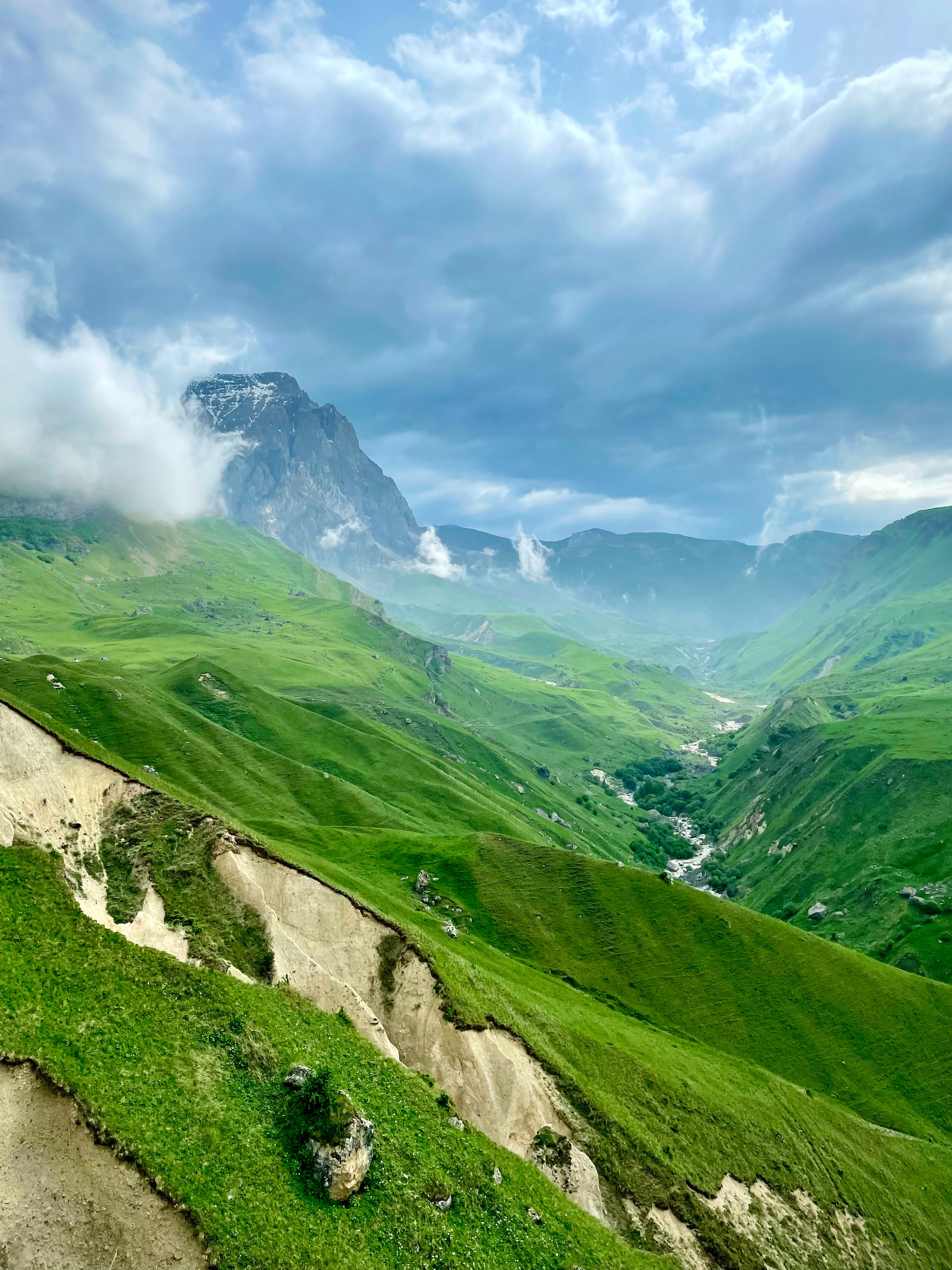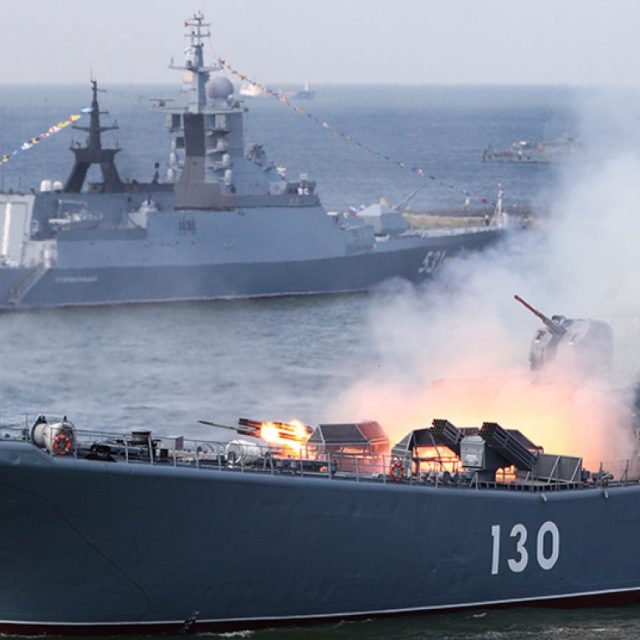Today, trust between the West and Russia is at its lowest level in recent history. Experts compare the current confrontation with the Cuban missile crisis. However, now the rhetoric and threats from the top leadership of the opposing sides have reached such an intensity that the timidly discussed possibility of a war between Russia and the United States has outlined a wider range of spheres of collision in the geography of interests.
The Russian side accuses Ukraine of aggravating the Donbass. Allegedly, Kyiv, in order to please the interests of its Western partners, initiated the intensification of hostilities and the advance of heavy weapons to the line of demarcation. Because of that, Moscow was forced to retaliate.
However, the concentration of the Russian military on the border with Ukraine has already surpassed their number in 2014, the “hottest” phase of the 7 year military conflict. The Ministry of Defense of Ukraine has estimated the total number of Russian troops deployed to the border at 110 thousand people. According to unverified reports, the Kremlin is currently negotiating with Minsk on the deployment of Russian troops on the Belarusian-Ukrainian border.
The main mouthpieces of the Putin regime appeal to the world community talking of the prospect of a repetition of a human catastrophe in Donbass similar to the tragedy in Srebrenica. It is Putin who has been using this false analogy since 2019 to keep control of the border with Ukraine until elections are held in the separatist republics.
According to Kyiv, it is precisely the withdrawal of Russian troops and the restoration of control over its territory that is a necessary condition for holding local elections. This issue was one of the key disagreements in the Trilateral Contact Group over the entire period of dialogue within the Minsk format. It is no secret that this problem led the negotiation process to a dead end, which is why Ukraine began to look for other formats for resolving the Donbass conflict.
This is not the first time that Russia has manipulated historical facts to suit its political objectives. In 2015, Moscow used its veto in the UN Security Council to block a draft resolution recognising the Srebrenica massacre as an act of genocide. The Kremlin still regards Serbia as a vassal state, and blocks any attempts to accuse the army of the Republika Srpska of exterminating thousands of Bosnian Muslims, thereby protecting it from political pressure and sanctions. But in commenting on the aggravation in eastern Ukraine and justifying its actions, the Kremlin contradicts itself.

On the one hand, the head of the Russian Security Council, Patrushev, says that there are no “red lines” in the Kremlin’s plans and there is no goal of conquering the “LPNR”. Presidential spokesman Peskov said that “no one is going to move towards war.”
On the other hand, the curator of Ukrainian affairs in the presidential administration of the Russian Federation Kozak has specifically outlined the Kremlin’s position on Donbass – Russia may be “forced” to defend the LPNR if the situation continues to escalate, and this will become the “beginning of the end” for Ukraine. Obviously, the pretext of protecting its citizens will become the main argument of the Kremlin to justify its attack on its neighbour, having already forcibly distributed about 300 thousand Russian passports to residents of the occupied territories.
Other Russian functionaries are also preparing public opinion for the coming war. Defense Minister Shoigu speaks about the movement of 40 thousand military and 15 thousand units of weapons and equipment of the US and NATO troops to the borders of the Russian Federation, as well as the transfer of strategic aviation. The Press Secretary of the President of the Russian Federation Peskov does not exclude the possibility of disconnecting Russia from SWIFT, as well as blocking the payment card systems Visa and MasterCard. Foreign Minister Lavrov calls for a gradual abandonment of the dollar in mutual settlements with partners. In addition, he calls the US policy stupid and has permission from the Kremlin to use “any lexicon” of invective against the West.
Holding the visiting meeting of the Security Council in Sevastopol on April 13-14 can also be interpreted as illustrating the determination of the Russian leadership to raise the stakes in its confrontation with the West. Before that, Patrushev began to play out the party line agreed with the Kremlin, hinting that Ukraine could start military operations against Crimea, staging provocations with the help of the United States with the death of its servicemen.
The Kremlin’s general line is followed by the leaders of Russia’s satellite parties – the Liberal Democratic Party and the Communist Party of the Russian Federation. The leader of the communists Zyuganov called for the recognition of the “LPNR”, given that 400 thousand Russian citizens live there. The leader of the liberal democrats Zhirinovsky called for a clean-up of Ukraine within 24 hours and to hang Russian flags everywhere. At the same time, he reserved his position regarding Ankara’s support for Kyiv, recalling that if Russia annexed Crimea, then Turkey had annexed Northern Cyprus, part of Libya and Nagorno Karabakh.
The propaganda assault force of Russian journalists and war correspondents who arrived in the occupied Donbass last week has also created a deliberately fake picture.
Thus, Moscow’s aggressive foreign policy rhetoric has once again become a tool for preparing public opinion and mobilising the Russian people on the eve of a global catastrophe in the shape of a full-scale war.
Russia’s escalation of the situation in Donbass should be perceived as a destabilising factor for the Putin regime in order to achieve concessions from Kyiv in the negotiation process and weaken Western support for Ukraine. Moscow is also pursuing the goal of preserving a convenient Minsk format and preventing the organisation of other negotiating platforms in Donbass, especially with the involvement of the United States and Great Britain. The calculation of the Russian leadership is that a threatening signal to the West may force it to abandon the escalation in bilateral relations and weaken aid to Kyiv.
Meanwhile, Ukraine’s external partners are not ignoring Russia’s preparations. Against the background of Kyiv’s reciprocal concentration of its troops on the line of contact, an American delegation headed by the US military attaché Brittany Stewart visited. A sharp reaction from the Russian side was generated when it was noticed that painted on the chevron of the 72nd separate mechanised brigade of the Armed Forces of Ukraine was a skull and the strapline: “Ukraine or death.”
US Secretary of State Anthony Blinken held a number of meetings with NATO representatives in Brussels and foreign ministers of allied countries. At the same time, the members of the alliance “reaffirmed their unshakable support for the sovereignty, territorial integrity and Euro-Atlantic aspirations of Ukraine.” NATO Secretary General Jens Stoltenberg promised “strong support” to the alliance in a telephone conversation with Ukrainian President Volodymyr Zelensky. German Chancellor Angela Merkel, in a telephone conversation with Russian President Putin, urged him to stop the buildup of troops on the border with Ukraine.
The head of the leading faction of the European Parliament EVP Manfred Weber called for tougher European and American sanctions against Russia in the event of an escalation of the situation in eastern Ukraine or deterioration of the health of opposition leader Navalny. Commenting on the strengthening of the military presence of the Russian Federation on the border with Ukraine, he said that “Putin must know the price of his actions.” At the same time, the politician meant not only the freezing of the accounts of Russian oligarchs and the disconnection of the Russian Federation from the SWIFT payment system, but also the final stop of Nord Stream 2. In his opinion, the response of Western countries to Moscow’s aggressive actions should be “strong and unequivocal.”
US President Joe Biden tried to use all possible diplomatic resources. He spoke on the phone with Vladimir Putin, expressed concern about the buildup of Russian troops in Crimea and on the border with Ukraine, and called on Russia to reduce tensions. The head of the White House confirmed his interest in building stable and predictable relations in accordance with the interests of the United States and offered to hold the summit on neutral territory. Before that, at the Munich security conference, he spoke extremely harshly about Russian politics and accused Moscow of intending to weaken European solidarity through Ukraine.
The subsequent meeting between Kerry and Lavrov was most likely devoted to discussing the possibility of a Biden-Putin summit, as well as searching for possible points of contact.
In connection with the alarming events around Ukraine, there is a suspicion that Putin may use the escalation of the situation in the Donbas as a distraction for the annexation of Belarus. If such an idea is really present, then the seizure of this country will most likely happen bloodlessly. The overwhelming majority of the population of Belarus will not oppose this, since the tough confrontation between the protestors and the security forces for more than six months led to the almost final suppression of resistance and the development in people of a sense of hopelessness and uselessness of protest. This was also facilitated by the active participation of the Russian special services in strangling popular actions, as well as the spread of propaganda in Belarus by the employees of trusted Russian media who have been working in this country since last autumn.
The active movement of Russian troops around Ukraine can be interpreted as Putin’s intention to carry out a geopolitical exchange – a “hot” war in Ukraine in exchange for a “cold” annexation of Belarus. It can be predicted that the reaction of the United States and Europe to such a step will be noticeably calmer, since Belarus is not of much interest to the West, compared to Ukraine. The widespread pro-Russian sentiments in Belarus make it more difficult for the democratic coalition to openly defend the interests of the opposition. The Kremlin can carry out the outward appearance of the “legitimacy” of an annexation according to the scenario already worked out in Crimea – a referendum at gunpoint. Today, there are three Russian military bases in Belarus, the country is flooded with employees of the Russian special services. If by the time of the referendum it is possible to introduce additional military formations under the pretext of strengthening the Belarusian-Ukrainian border, these forces will be enough to keep the “expression of will” under control.
Against the backdrop of the collapse of its economy under the pressure of sanctions, the pandemic, an explosion of social tension and a surge in poverty, on the eve of Putin’s appeal to the Federal Assembly, holding some kind of victorious action in the foreign arena is vital for the Putin regime to increase its ratings before this autumn’s elections to the State Duma
However, the West should not forgive the Putin regime for its military and political adventures. Many countries of the former socialist bloc have terrorist quasi-formations through which Moscow influences their policies, and at the same time blackmails the whole world. The “war booty park” from Nagorno-Karabakh opened in Baku proved that the Kremlin creates and generously sponsors its puppets with the latest weapons, or directly intervenes in the conflict. The President of Azerbaijan Aliyev has openly accused Russia of being a party to the conflict in Nagorno-Karabakh.
Expecting the next package of sanctions for interference in elections, cyberattacks, “bonuses” to terrorists and the use of chemical weapons against the opposition, the Russian president is raising the stakes in the hope of bargaining for geostrategic preferences or easing restrictions. The sanctions did not have a quick effect, but they have been very painful. Stagnation in the Russian economy has led to a long chain of crises. Stagnation in modern Russia may end with a war. This war is the agony of inadequate and shortsighted power. Moscow might unleash such a war on the eve of a radical change of power. It would be more correct to say that wars of conquest are the cause of regime change, since they impose an unbearable burden on the economy, destroy the social sphere and cripple the culture of the people.
Whatever happens, the revanchist and aggressive policy of the Kremlin in Ukraine or the colonial policy in Belarus should not go unpunished.




